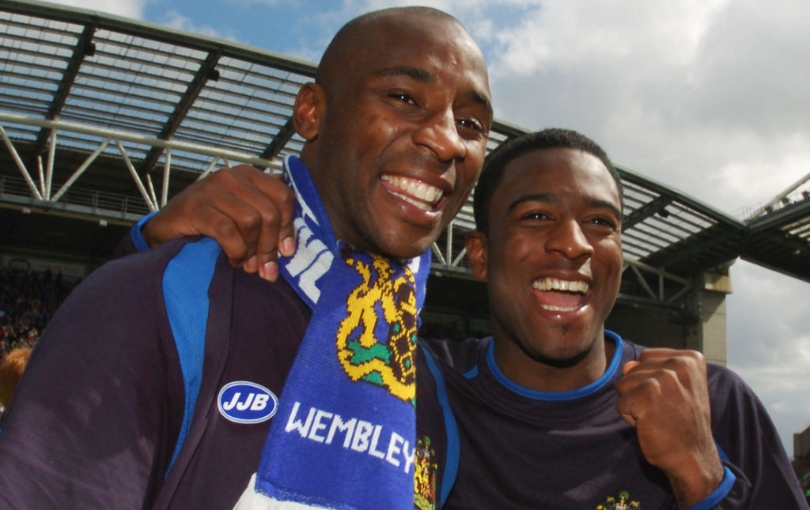How rehab rebuilds players' shattered bodies – and minds
Think all players on the sick-list are scroungers? Think again. FFT Performance Editor Ben Welch spent time at St George's Park with some worried men desperately trying to get their football careers back on track...
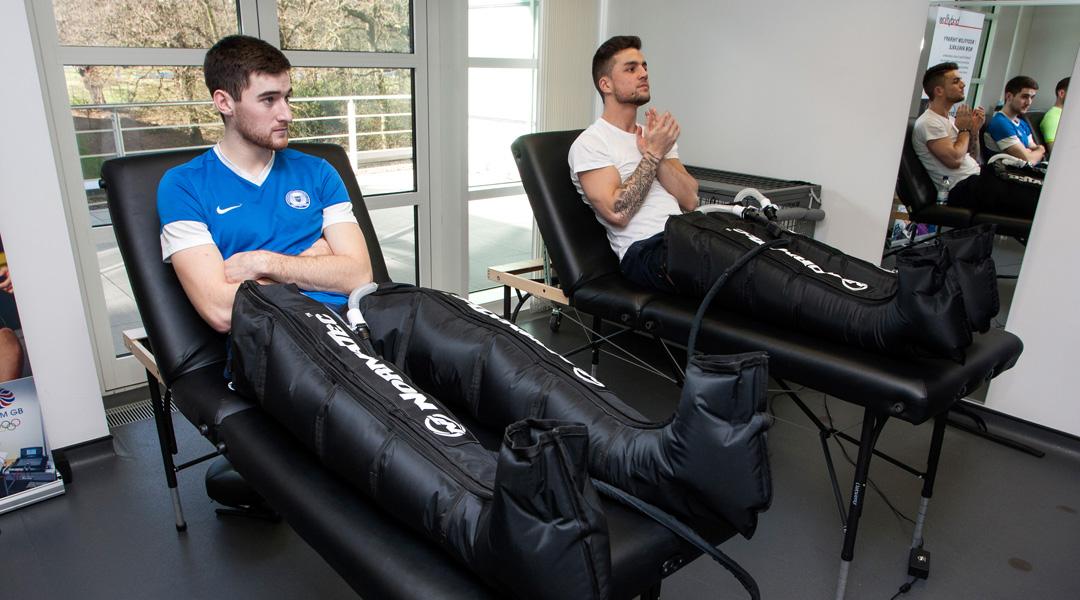
Rotherham United defender Mark Bradley is laying on a physiotherapy plinth, with his shorts hiked up, exposing a leg punctured with needles. “I don’t know what this does and I never really feel the difference, but I’m willing to try anything,” the former Walsall man tells FourFourTwo, as Kanye West’s Jesus Walks booms out of a sound system.
Bradley, 27, has been out for a year after damaging his anterior cruciate ligament during the Millers’ 2-0 League One win over Oldham in March 2014. Bradley scored in that game before twisting his knee. He hasn’t played a minute in the Football League since.
In his bid to get back out on the pitch he’s come to St George’s Park, the National Football Centre, to work with top-class clinicians and state-of-the-art equipment. Time is of the essence: his contract runs out at the end of the season, and he needs to prove his fitness to his employers at the New York Stadium.
Bradley doesn’t have millions sitting in a bank account. He’s not set for life. Football is his job, his body is his tool and right now it’s not working. He’ll try anything to jumpstart his engine, including acupuncture.
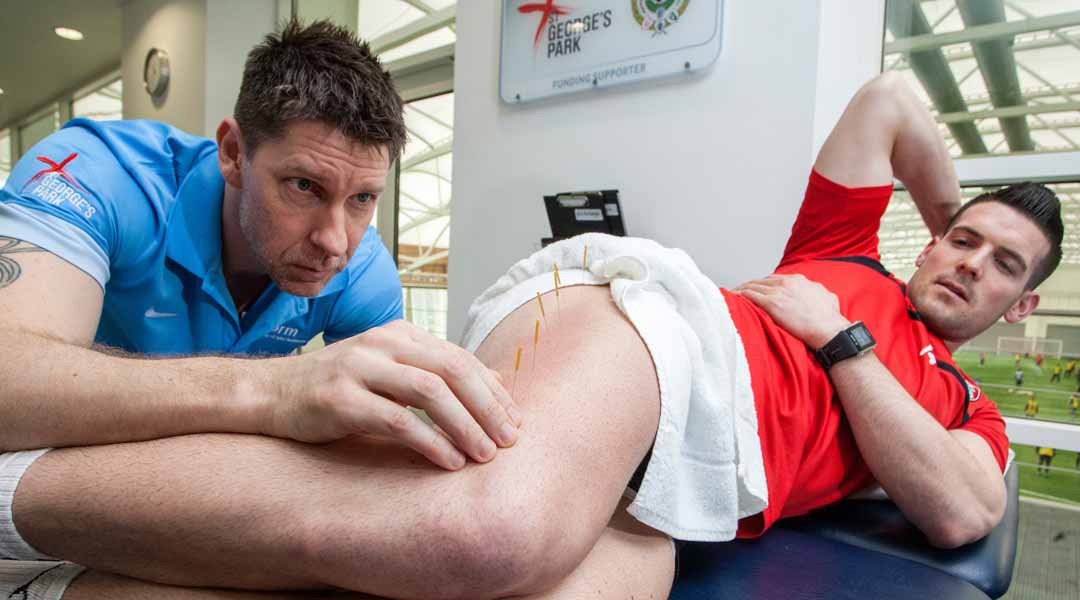
He’s not convinced it works, but he’s desperate. “Being injured is the hardest thing a footballer can go through,” he says. “My contract is up in the summer and I need to show the club my knee is OK. It’s a worry.
“Premier League footballers might not have to worry as much because they’re on life-changing money, but lower down the leagues it’s not like that. I’ve got a mortgage and a car to pay for.”
My contract is up in the summer and I need games to show the club my knee is OK. I’ve got a mortgage and a car to pay for
And there’s the reality Joe Public overlooks. Footballers are all young, rich, talented and famous, right? Their lives are perfect? Wrong. Lower down the divisions most players earn a modest wage, squeezing what they can out of a short career.
Get FourFourTwo Newsletter
The best features, fun and footballing quizzes, straight to your inbox every week.
In an ultra-competitive market, they’re fighting for every contract. When they’re crocked, their value depreciates like a vintage wine souring in the bottle. This can have repercussions in both their personal and professional lives, often leaving them with just the space between their ears to cope.
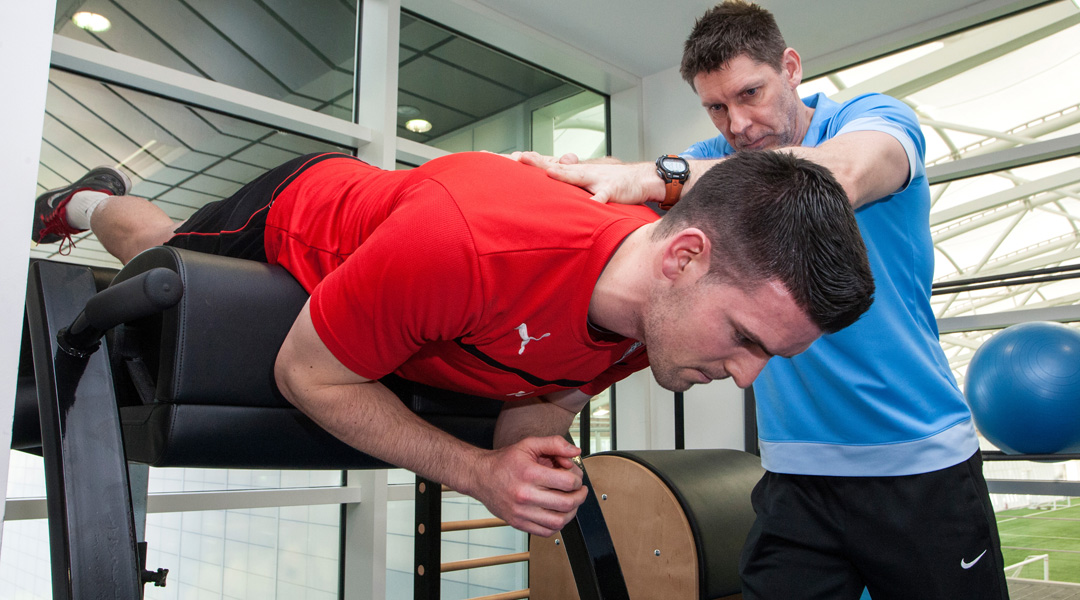
To help players get back out on the pitch, the PFA has a partnership with healthcare provider Perform. As part of their membership players can spend four days at St George’s Park on an intensive rehabilitation scheme. To find out what they really go through, FFT has joined five players in their fight to get fit.
Change: as good as a rest
Slumped on the sofas in Perform’s reception, five footballers sit in silence watching Sky Sports News flicker on the TV screens. Rotherham’s Bradley is joined by Peterborough’s Jack Baldwin, Northampton’s Lewis Hornby, out of contract Ben Sampayo and former Wrexham defender Mike Williams, who is trying to make a comeback after a degenerative condition forced him to retire at the age of 28.
There are no recognisable faces, no distractions, no familiar surroundings. This collection of players have been thrown together miles away from their natural support systems. But as Hornby explains, being isolated from their friends, family and team-mates helps rather than hinders them.
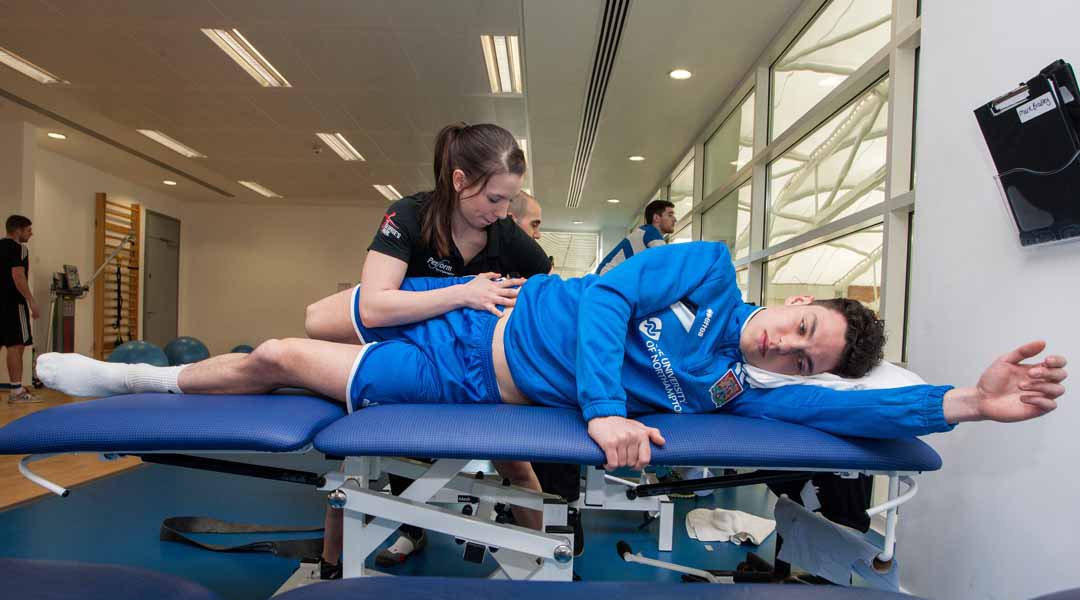
“It’s nice to have a change of scenery and meet other players,” says the 19-year-old, who is recovering from a catalogue of injuries. “When you’re at the club you have to face your team-mates and manager every day, asking you when you’re going to be back.
Coming here helps you keep your sanity. There have been times I didn’t want to get up and train
“You have to watch your team-mates going out to train every day – and that gets to you, because you want to be out there. Coming here freshens the mind and helps you keep your sanity.”
Hornby should know: it’s his third time here, and he’s not even 20 years old until later this month. His last game was the League Two play-off final against Bradford at Wembley in May 2013. Like Bradley, he faces an uncertain future with his current deal expiring.
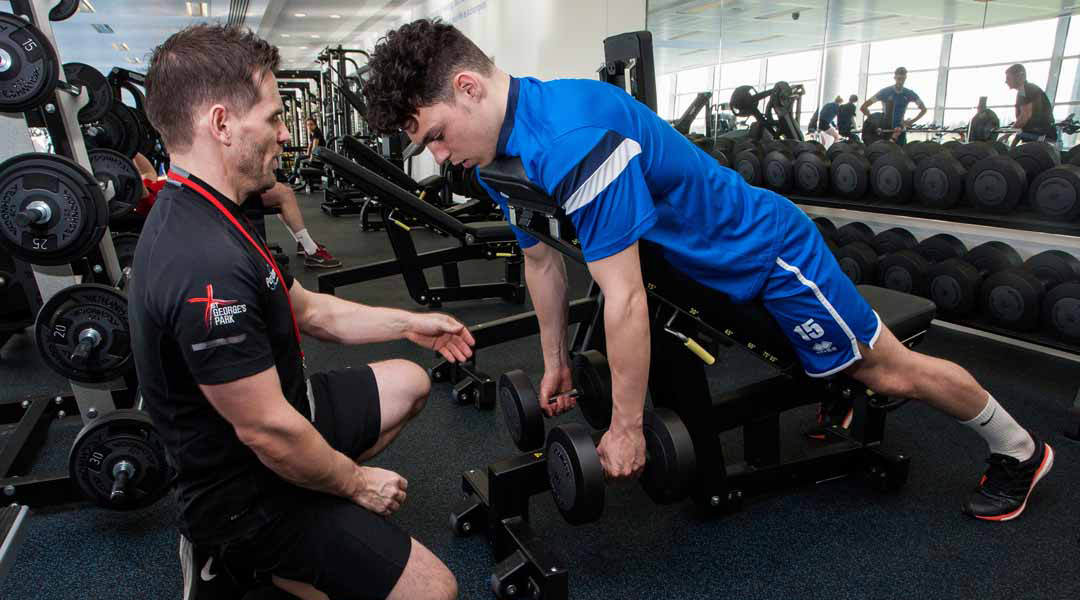
During the last two years he’s battled through back problems, groin strains and tendonitis in both knees, pushing his mental resolve to the limits. “It’s been tough,” he admits. “There have been times I didn’t want to get up and train. I’m more worried about getting fit than getting a contract. Before I got injured a lot of clubs were looking at me because I’d played almost 30 games in the Football League at 17.”
Mens sana in corpore sano
Give a footballer a rehabilitation programme and they will work through it. But the psychological battle is an unseen enemy they’re not equipped to fight, says Dr Charlotte Cowie, clinical director at St George’s Park. “When a player is coming back from an ACL they can hit rock bottom. As well as having to slog through the rehabilitation they feel insecure – worried they’re not going to get back in the team.”
A player coming back from an ACL can hit rock bottom. Seeing a sports psychologist would help, but they don’t want to be seen to be seeking help
Rather than ask for help, the players maintain a veil of invincibility to protect their status in the dressing room hierarchy. “Seeing a sports psychologist would help them cope, but they see this as a weakness. They don’t want to be seen to be seeking help.”
When players choose to go it alone they risk psychological trauma, as well as physical, says peak performance coach Tom Bates.
“When players are injured it’s like a freight train coming to a halt and they go through a process know as IFD – Idealism, Frustration, Despair,” he says.
“They have an idealistic perception of how their rehab will go and when they’ll be back playing, based on perfection not reality.
“When this doesn’t happen they get frustrated because they feel they have no meaning or purpose to what they’re doing – this leads to despair.”
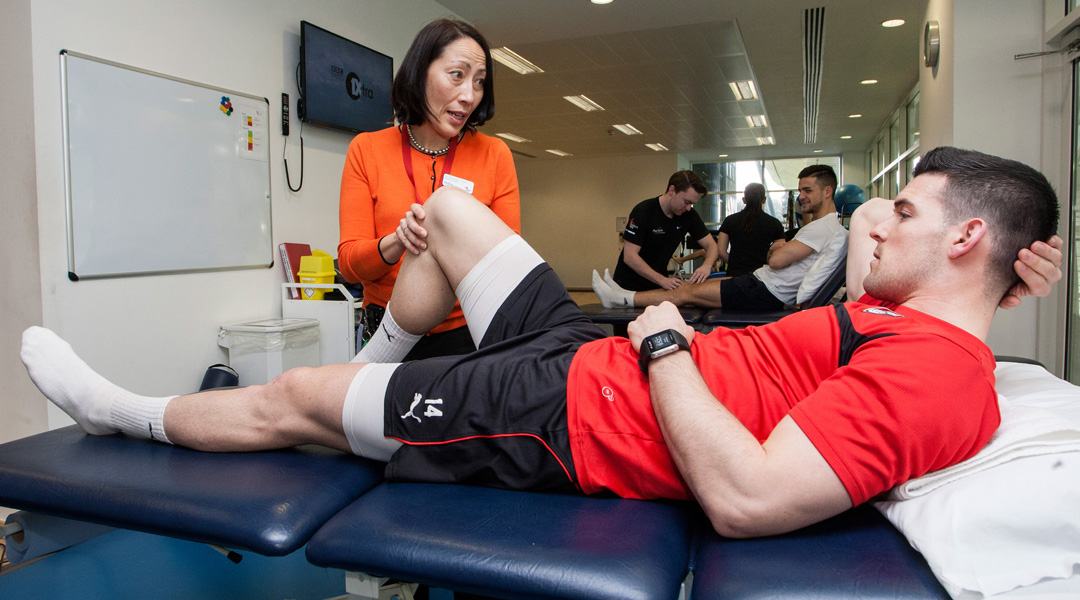
"It's been horrible. I hate it"
This feeling of despair is driven by a loss of identity, a problem currently haunting Baldwin. The Peterborough defender tore the ACL in his right knee in November and isn’t expected back until next season. “The manager wants us to go to home games and that’s been horrible,” he tells FFT. “I hate watching from the stands, not being able to help. I feel like I’m picking up my wages and not contributing.
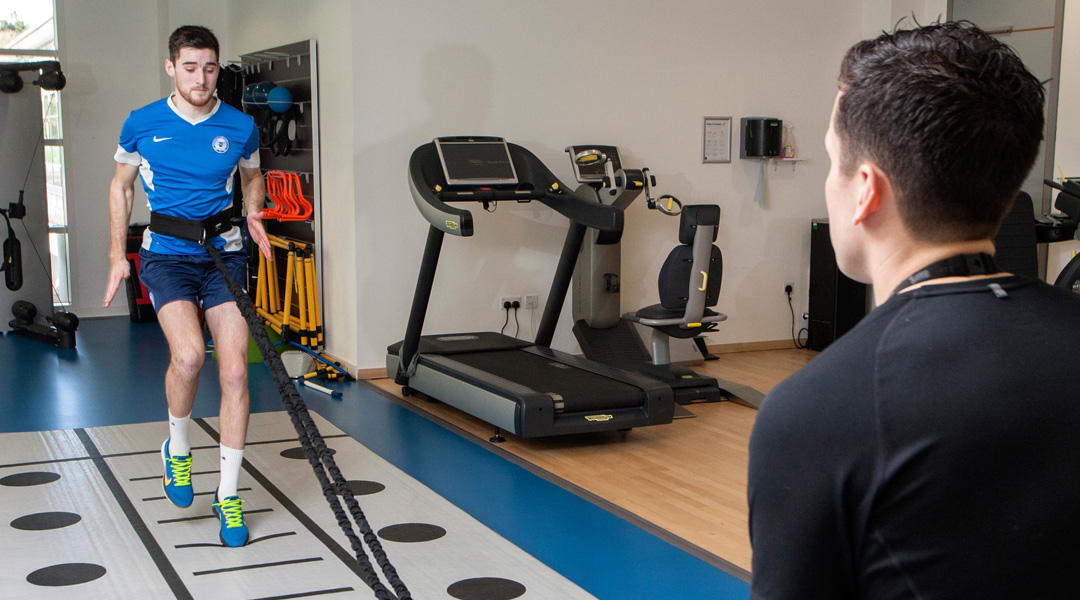
I hate watching from the stands, not being able to do anything to help the team. I feel like I’m picking up my wages and not contributing
“When I get back it’s going to be one of the biggest challenges of my career – new season, new faces and a new manager who hasn’t seen me play, so I’ll have to impress him.”
Questioning their worth and what defines them is intensified by hours of rehabbing alone, away from the team – an experience 22-year-old Sampayo knows too well. Unable to break into the first team at Chelsea or Brighton, in January 2014 he went north of the border to Scottish League One outfit Greenock Morton.
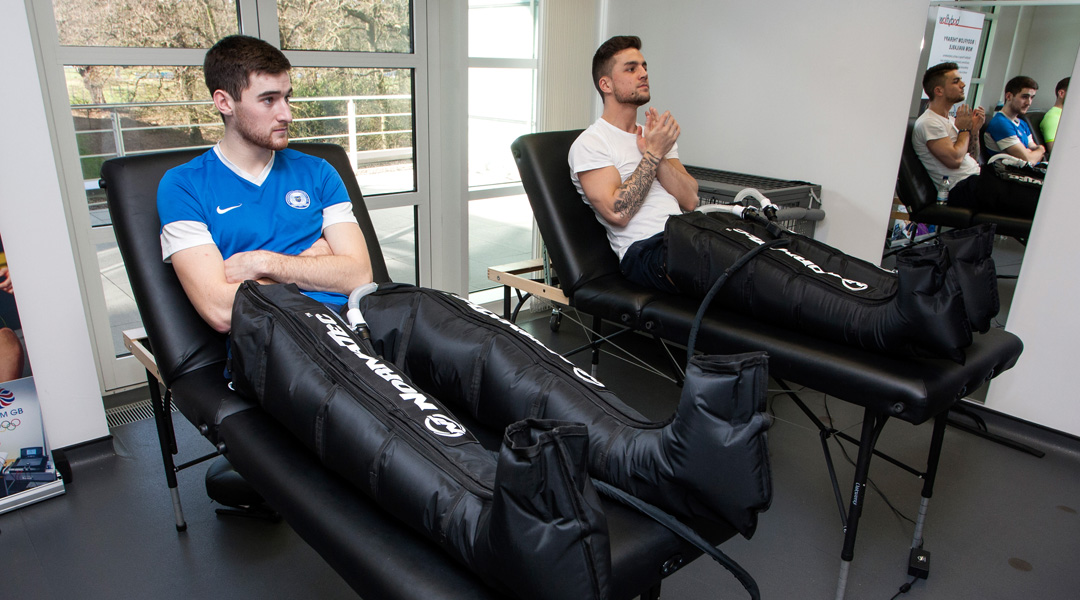
The Londoner played just 58 minutes of the Cappielow club's battle to avoid relegation before a cruciate injury ended his game, season and time at the club. It was bleak for a young man watching his career drift.
I felt lonely and depressed. I don't want to think about that negative route
“I was living up there on my own with no one around me. I found it really tough,” says the Dagenham-born defender. “My contract was up in the summer so I was trying to sort out my own surgery. I felt very lonely, really isolated and depressed.”
Released by Morton, Sampayo returned to England trying to regain fitness with the help of the PFA, but the reality of life after football is starting to set in, even if the right-back doesn’t want to accept it.
“Clubs look at me and wonder whether I’m worth the risk. I have been asked about what I’ll do if I can’t play football again, but I don’t want to think about that negative route right now.”
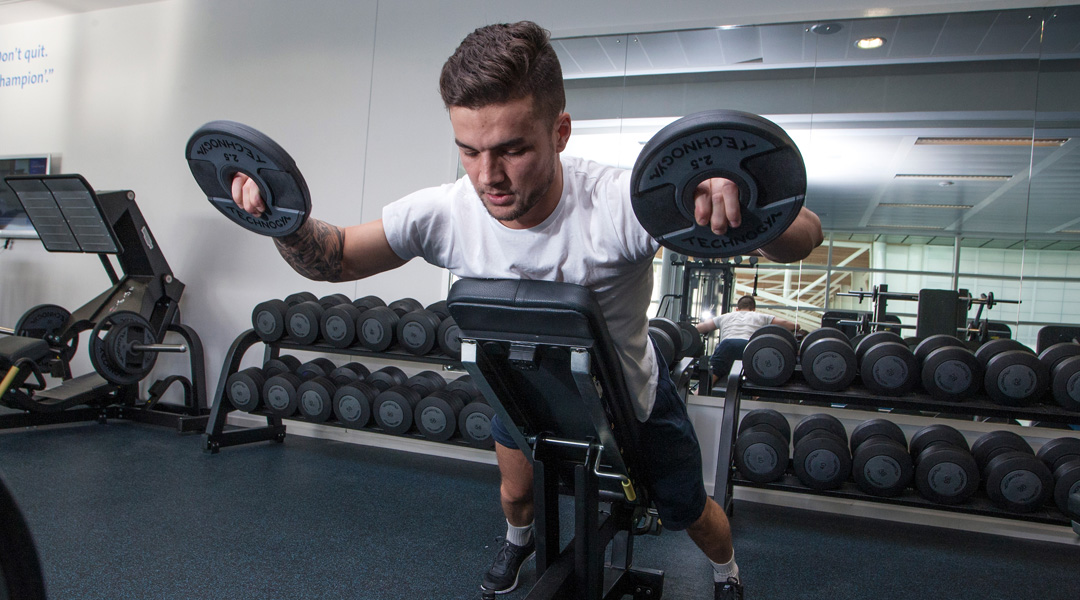
Eat, sleep, train, repeat
Sampayo doesn’t encounter this isolation at St George’s Park. Sweating alongside one another, the players are starting to forge a powerful team spirit. They’re beginning to form relationships with one another and trust the medical team. Silence has been replaced with laughter and conversation. An evening of sharing their darkest moments has brought them closer together.
After a day of tests they’re now on a stringent regime of eat, sleep, train, repeat. England physio Steve Kemp and his team of elite therapists guide the team through rehabiliation exercises, gym sessions, cardio workouts, Pilates, hydrotherapy and teeth-chattering ice baths.
It’s relentless and there’s no place for slackers here, but that’s fine by the players – they can’t afford to ease off. There’s more than fitness at stake: there’s pay-cheques to chase and families to support.
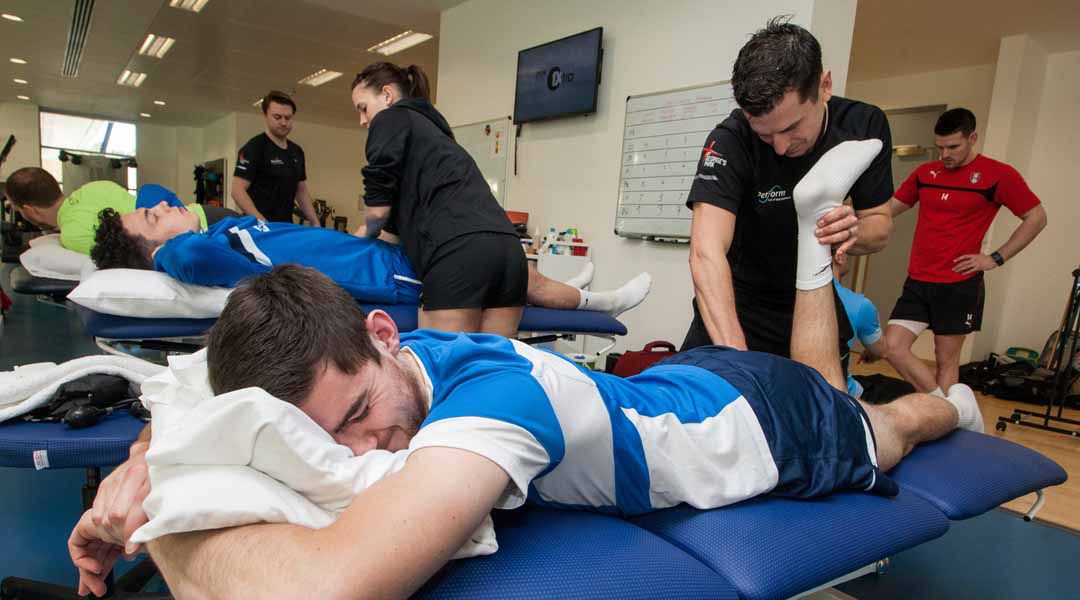
Appearance bonuses mean if you’re not playing it’s a big bit out of your wages. When you’re on a year-to-year contract you rely on your body
“Wolves are a Championship side, but the appearance bonus made up a big chunk of my money,” explains former Wolverhampton Wanderers and England Under-21 goalkeeper Matt Murray, who was forced retire at 29 with a knee injury.
“If you’re not playing it’s a big bit out of your wages. When you’re playing in the lower leagues and you’re on a year-to-year contract you rely on your body to keep going.
“Say a manager is weighing up who to sign out of two players. One has a bit more talent, but is only averaging 25 games a season. The other player, who isn’t quite as good, is playing 40-45.
"The manager will always sign the latter because he’s on a tight budget and he needs to get a team out.”
"I'm not completely relying on it..."
The final day of rehab at St George’s Park is over. The players are heading back to their clubs rejuvenated and ready to continue their careers... except Sampayo and Williams.
The latter was club captain at Wrexham and played with the likes of Gareth Bale, Aaron Ramsey and Joe Allen, but was told to prematurely hang up his boots after he was diagnosed with osteoarthritis in both hips.
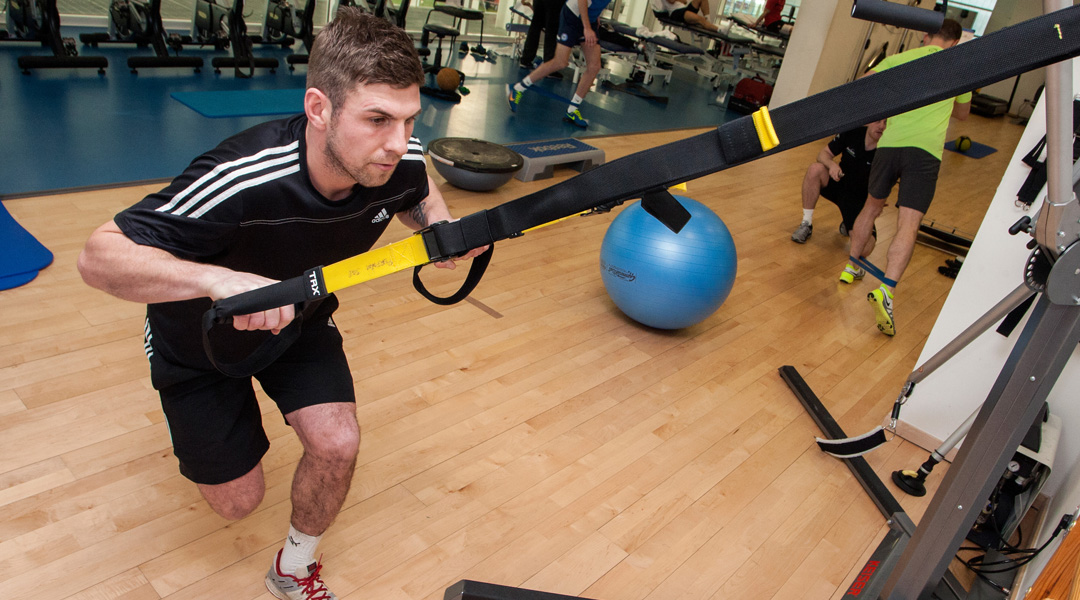
“I went to see the specialist thinking I was going to have surgery and I left feeling sick, driving home thinking about what I was going to tell my family,” he explains. “My initial thought was ‘I can’t play anymore’ – I didn’t even think about the mortgage, and the bills, and where I was going to get an income from.”
Williams hasn’t give up all hope just yet. He plans to ease his body back into training and see how it responds. If it kicks back, he has a Plan B. “I’m going to see how my body reacts to training and then I’m going to try to do a pre-season with a Conference club,” he says. “I’m not completely relying on it – I’m starting a sports science degree in September so I can become a PE teacher.”
Accepting the reality is something Murray had to deal with and the Solihull shot-stopper turned Sky Sports reporter and pundit, now 33, couldn’t do it all on his own.
I couldn’t accept the injustice. I didn’t drink, I worked hard, but I kept breaking down. Others drank and ate what they wanted and never got injured
“I did a lot of work with psychologists to help me move on because I couldn’t accept the injustice of it,” he says. “I didn’t drink, I worked hard, but I kept breaking down. There were other players who drank and ate when they wanted and never got injured.
“When you’re not playing you don’t have that buzz and that’s when people get in trouble. They get into gambling, womanising and drinking because they need to replace that buzz.
“You can either wallow in self-pity or get over it. It wasn’t easy but I eventually worked through it.”
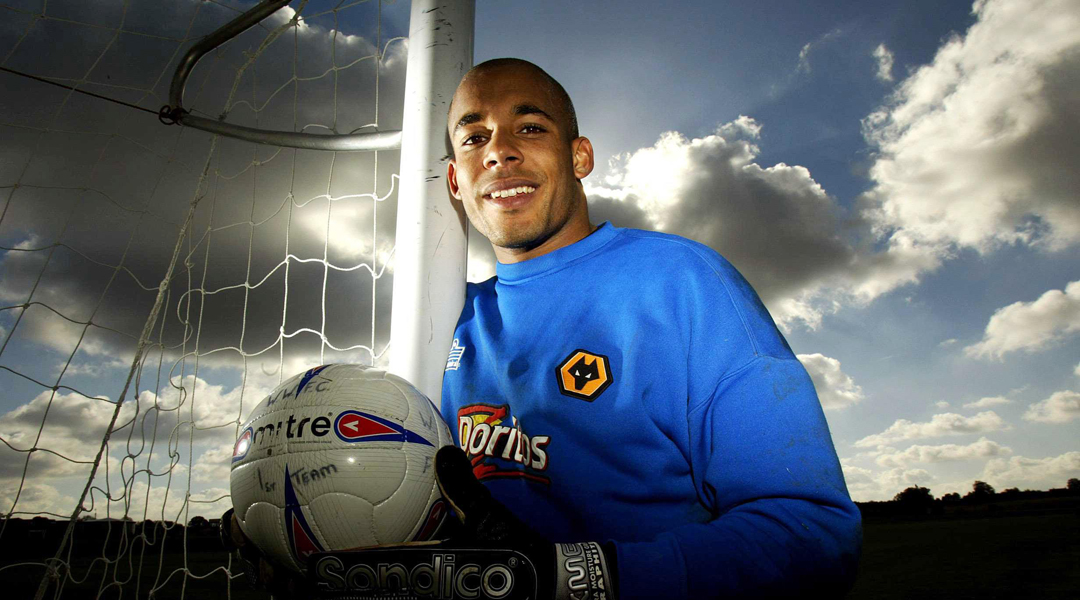
Part of that process is putting your trust in other people and, as Bates notes, realising you can’t control how your body reacts – only how you respond mentally.
“Players have to accept the situation for what it is – not seeing it as any worse or any better than that,” he explains. “They have to disconnect from the situation emotionally and surrender to the cold, harsh facts. That doesn’t mean giving up – it means coming to terms with reality and responding positively.”
That goes for fans too. Injured players aren’t just sitting on their backsides, playing Call of Duty and picking up their wages. They’re grafting – quite often, harder than the ones out on the pitch. Yes, they’re free from the pressure of playing, but that’s the pressure they crave – that’s the pressure they’re paid to deal with and, like the rest of us, they need to work to pay the bills.
Next time you see an injured player moping around Tesco, staring vacantly down the booze aisle, give them a healthy dose of encouragement – it might just be what they need.
